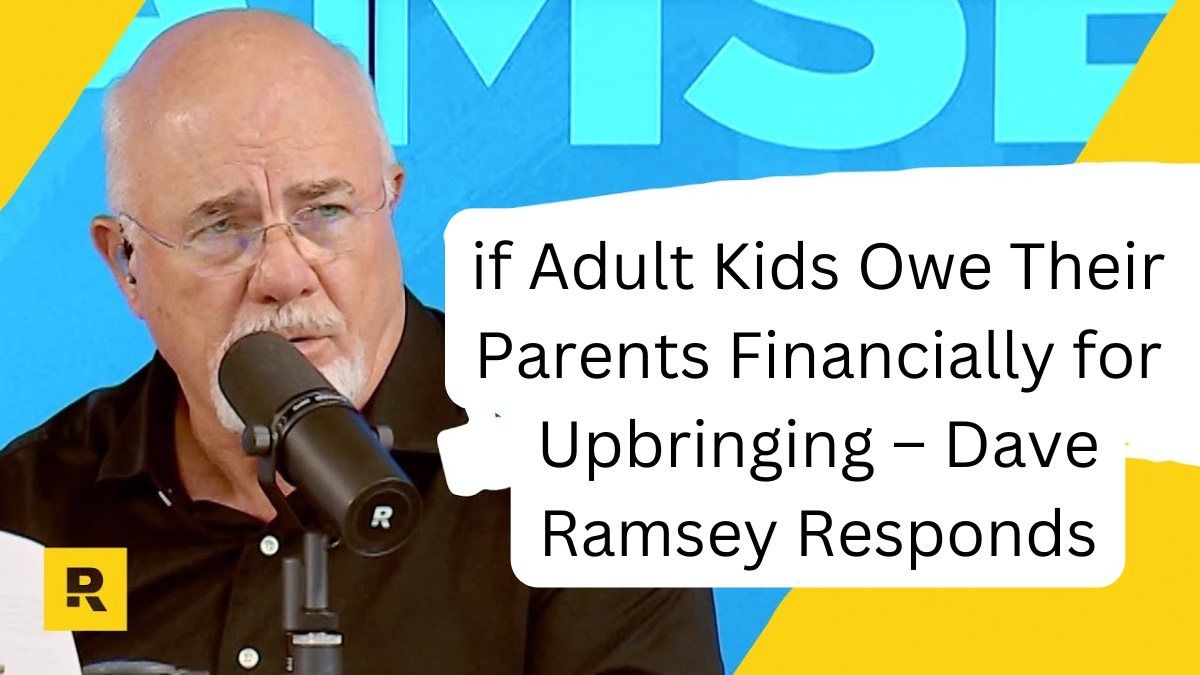Economic pressures today are shifting family dynamics, and more adult children are finding themselves faced with the question of whether to support their parents financially. Robert, a man from Texas, recently voiced this dilemma on The Ramsey Show, questioning whether his successful, six-figure-earning adult children should help him and his wife pay down debts incurred by natural disasters.
While financial expert Dave Ramsey offered a blunt perspective, co-host Rachel Cruze and other financial advisors provided more nuanced views. Here, we explore the complexities of this question and examine expert insights on whether financial support should be considered a duty or a personal choice.
Changing Dynamics of Family Financial Support
This Article Includes
- 1 Changing Dynamics of Family Financial Support
- 2 Robert’s Situation: A Call for Help or a Demand for Obligation?
- 3 Dave Ramsey’s Take: Charity Without Obligation
- 4 Rachel Cruze’s Nuanced View: Balancing Family Dynamics and Financial Responsibility
- 5 Expert Advice from Ramit Sethi: Setting Boundaries for Financial Assistance
- 6 Navigating Financial Support: Questions to Consider
- 7 Conclusion: Family Support as a Personal Choice
Economic instability, rising costs, and unexpected challenges, such as natural disasters, have left many families considering financial assistance across generations. According to a 2023 Pew Research study, 55% of Americans feel they bear at least some responsibility to provide for an elderly parent. In a previous AARP study, nearly one-third of middle-aged adults reported already supporting their elderly parents financially, with a higher percentage expecting to do so in the future. However, some, like Dave Ramsey, argue against expecting financial aid from adult children, suggesting that parents should not feel entitled to it.
Robert’s Situation: A Call for Help or a Demand for Obligation?
Robert’s family dilemma centered around financial assistance following a string of natural disasters. A flood destroyed the family’s vehicles, while a fire damaged their home. Though insurance covered some losses, Robert still incurred debt from repairs and replacements. Despite his children’s financial success, Robert faced pushback when he requested help, especially after they cited Dave Ramsey’s financial philosophy, which discourages adult children from taking on their parents’ debts. Robert, meanwhile, felt that his efforts in putting them through college and paying their phone bills created an expectation of reciprocal support.
Dave Ramsey’s Take: Charity Without Obligation
Dave Ramsey’s response was firm: children are not indebted to their parents simply for being raised. Ramsey asserted that Robert’s continued financial support of his children’s phone bills was misguided and “dripping with entitlement.” He emphasized that financial support should be given freely, not as an obligation. “Charity extracted through guilt is not charity,” Ramsey explained. According to him, if the adult children chose to offer financial support out of love or goodwill, it would be a different matter. However, he advised against imposing any kind of financial debt on children due to parental sacrifices.
Rachel Cruze’s Nuanced View: Balancing Family Dynamics and Financial Responsibility
Ramsey’s co-host and daughter, Rachel Cruze, offered a more flexible perspective. She suggested that the decision to help one’s parents financially depends on factors such as family culture, relationship quality, and individual circumstances. While she agreed that parents should not demand financial aid from their children, Cruze acknowledged that each family is unique, with varied levels of interdependence. She stressed that open communication and mutual respect are key when navigating these sensitive financial discussions.
Expert Advice from Ramit Sethi: Setting Boundaries for Financial Assistance
Financial expert Ramit Sethi added another layer of perspective, emphasizing the importance of boundaries and transparency. Sethi advised that adult children contemplating financial support for their parents should have an honest conversation about their parents’ financial needs, as well as their own capabilities. He warned against enabling habits that could lead to future dependence, instead suggesting that financial aid be structured to encourage debt reduction and self-sufficiency. Sethi’s advice underscores the importance of using financial support as a tool for empowerment, not reliance.
For adult children considering supporting their parents, there are a few key questions to weigh:
- Is my own financial stability secure? It is essential for adult children to assess their ability to provide help without jeopardizing their own financial future.
- Is this support empowering or enabling? Setting boundaries can help ensure that financial assistance fosters independence rather than dependence.
- Are there alternatives? Families may consider other options, such as helping parents access financial planning resources or guiding them through options like insurance adjustments or low-interest loans for disaster relief.
Conclusion: Family Support as a Personal Choice
The question of whether adult children should financially support their parents does not have a one-size-fits-all answer. For some families, providing financial help is an expression of love and respect, while for others, it may be unfeasible or even counterproductive. Balancing personal values, family culture, and financial stability can help families make thoughtful decisions. Ultimately, the choice to offer financial support is deeply personal and should ideally stem from a place of mutual understanding and respect.








Leave a Reply